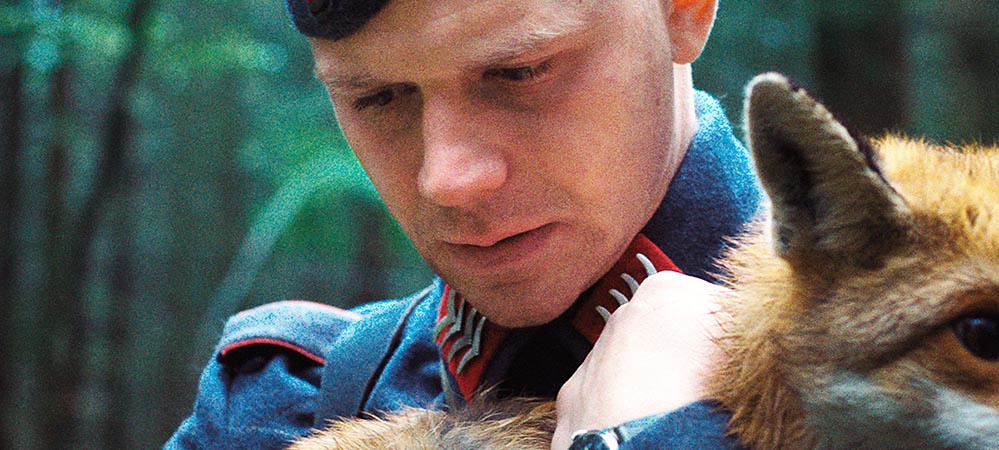'The Fox' (Der Fuchs), an atypical film about an Austrian soldier in World War II
It's been a while since I saw a movie that I wanted to dedicate an article to, but this week I saw "The Fox" (Der Fuchs).
This Austrian-German co-production premiered in Tallinn, Estonia, in 2022 and recently appeared on Movistar. Directed by Adrian Goiginger, who also wrote the screenplay, it is based on the true story of his grandfather Franz Streitberger, although the title refers to its second protagonist: a fox cub that Franz found during the World War II. The film has a very good setting, excellent photography and a notable soundtrack by Arash Safaian, forming the necessary ingredients to show us one of those personal stories that are usually left out of history books.
NOTE: Below you can see some details of the film. If you are going to see it, you may prefer to stop reading here.
The film begins in a somewhat traditional style, introducing us to a large family from the Austrian mountains. A very devout Catholic family, and also very poor and illiterate. The film shows this with respect and without sentimentality, faithfully exposing what life was like in the countryside at that time. From Franz's childhood the story jumps to his youth, in 1937, when he enlisted in the Austrian Army a year before the German annexation. We see him standing guard in the Alps, in front of the German border. The young man exhibits an introverted character and his low propensity to chat with his colleagues, which largely explains the next part of the feature film.
That part begins in 1940. Franz is now in the troops of the Luftwaffe, the German air force (the Austrian Army was integrated into the Wehrmacht, the German armed forces, after the annexation). He is a messenger who works as a messenger. The film shows us the daily life of soldiers, to a certain extent with the same naturalistic style as the works of the painters Alphonse de Neuville, José Cusachs and Augusto Ferrer-Dalmau.
Franz finds the fox cub in a forest and by pure chance. The cub's mother had died trapped in a hunting trap. The young soldier takes care of him and a relationship is created that helps him understand his father , with whom he had not had contact for many years, which leads him to write a letter. During the film we see some of the terrible scenes left by the war in France, although the action does not stop there, as if the protagonist, in his memories, had not wanted to remember those horrible scenes. When the troops arrive in Normandy, Franz sees the sea for the first time, an unforgettable moment for a young peasant and one in which Goiginger delights.
I really liked the film, because it shows aspects of military life that major war film productions rarely dwell on. "The Fox" will especially please fans of military motorcycles, since in several scenes we see Franz taking care of the maintenance of his. For the rest, the ending is especially memorable (I won't tell you anything).
In summary: it is an excellent film, which can also be seen with the family (although some moments are hard), and which treats the religious fact with respect, something increasingly atypical in current cinema. I especially liked the attention paid to the figure of the father, a figure who seems condemned by a certain ideological discourse. I recommend it. You can see the advertisement with English subtitles here:
|
Don't miss the news and content that interest you. Receive the free daily newsletter in your email: Click here to subscribe |
- Most read
- The formation flight of fighters of Spain and Germany over Naval Station Rota
- The firearms used by the Pontifical Swiss Guard, the smallest army in the world
- A large collection of Volkswagen cars hidden in an abandoned mine in Switzerland
- The Pegasus case and how it could end with Pedro Sánchez due to a decision by France
- The ten oldest national flags in the world that are still in use today
- A minister of Pedro Sánchez uses the same anti-Semitic slogan as the Hamas terrorists
- Lenin: numbers, data and images of the crimes of the first communist dictator

 ES
ES





Opina sobre esta entrada: